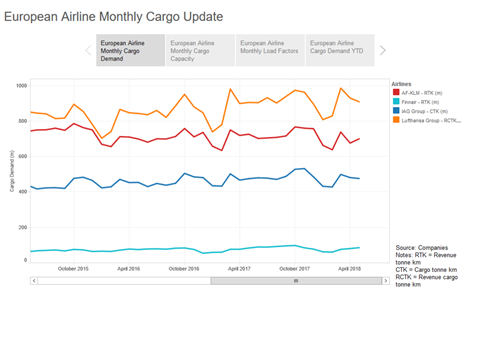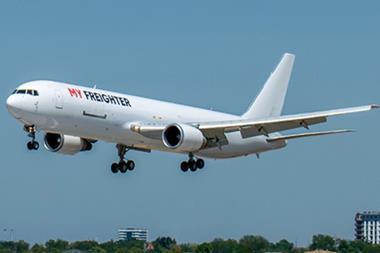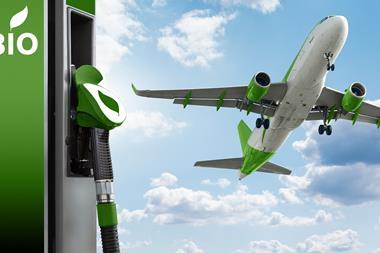European airlines saw cargo growth slow in May, although the market was particularly strong this time last year.
Europe’s largest air cargo combination carrier group, Lufthansa, saw cargo traffic during the month increase by 0.4% year on year to 908m revenue cargo tonne kms, which lags behind its growth rate for the first five months of 3.7%.
Capacity additions mean the carrier saw its load factor slip to 63.7% from 67.7% last year.
It was a similar story at IAG Cargo where cargo traffic in May increased by 0.3% to 475m cargo tonne kms, just ahead of growth for the year so far of 0.2%.
While growth lags behind that experienced last year, it was always going to be difficult for the industry to continue to perform at that rate.
IATA said the euro has strengthened this year, putting pressure on exports, while Germany has seen a softening of export orders.
Meanwhile, Air France KLM saw cargo demand during May decrease, slipping by 3.6% year on year to 699m revenue tonne kms - its third monthly decline in a row.
However, the airline has been hit by ongoing strikes, which have affected volumes. Over the first five months of the year, it has recorded a 2.1% decline in cargo traffic.
The strikes meant capacity during the month was also down on a year earlier, although this was not enough to stop load factors reaching 58% against 58.9% in May 2017.
Finally, Finnair saw cargo demand during the month increase by 2.6% year on year to 84.8m revenue tonne kms. Its year-to-date growth also stands at 2.6%.
However, the introduction of A350s on Asian routes since May last year meant that supply outstripped demand and its cargo load factor slipped to 57% compared with 66.3% in 2017.
Click on chart for interactive version
Read more air cargo data news
Sign up to receive Air Cargo News direct to your inbox for free











